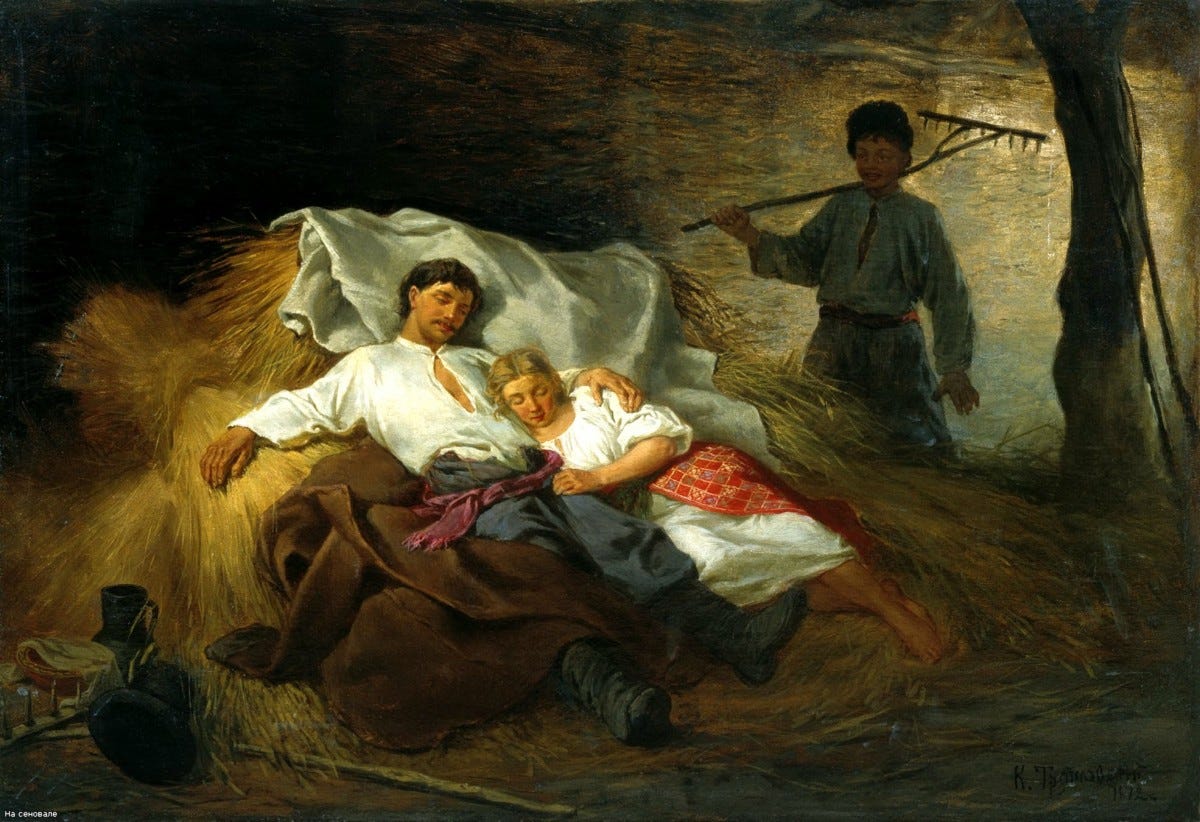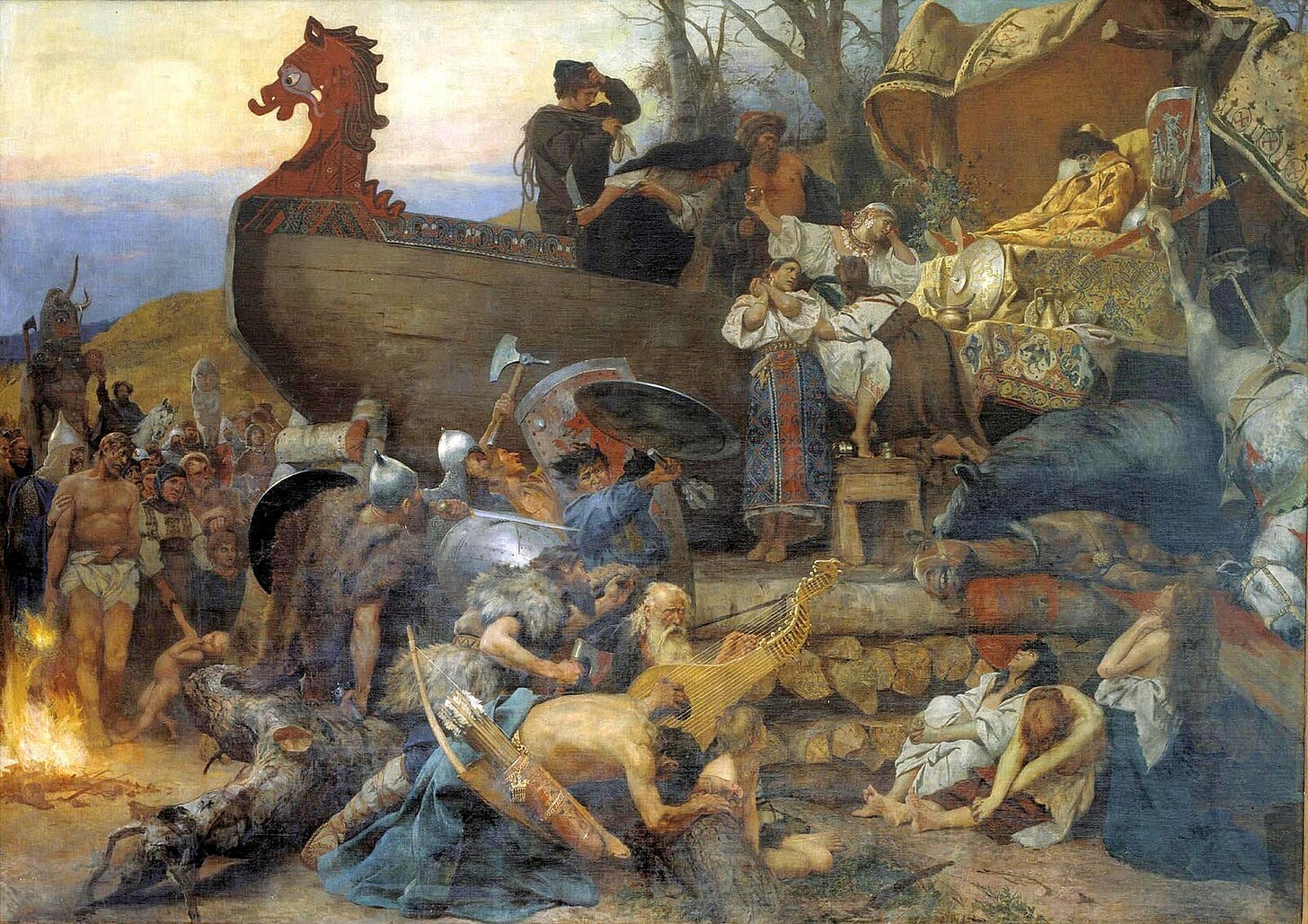Slavic Virginity and Shame
The Concept of Virginity in Eastern European Slavic Rural Societies: A Commentary on Its Origins, Development, Rituals, and Relevance to the Modern World.
I don’t think I will surprise anyone by saying that for centuries, women’s bodies have been controlled, scrutinized, and publicly policed in a display of “honor” and “purity,” where personal choices and autonomy were transformed into public tests of family respectability. We deal with this now in 2024, and our Slavic ancestors dealt with it hundreds of years before us.
Many pagan (Slavic included) societies initially held sexuality in a sacred, life-affirming role, with women’s contributions to love and fertility rituals viewed as spiritually significant. We see remnants of that in some Indigenous cultures in Russia; for example, my people, Erzya, still have an all-female deity pantheon and one of the few rural societies in Russia that didn’t enforce the virginity rule or ever cared if a woman was married before and already had children.
Regarding Slavic pagans specifically, we see in the 10th-century accounts of Ahmad ibn Fadlan, an Arab traveler who observed the Rus’ and recorded how women were adorned to display their husbands’ wealth, reducing them to symbols of male status. He also noted a few brutal practices in relation to women, which I won’t even dare to mention here to protect your sanity. If you feel inclined to venture out, you may read the notes here (TW: death, SA).
I always wondered how this came about and don’t remember where I read it (I suspect it was “Sapiens” by Yuval Harari, but can’t be sure), but the book claimed that the decline of matriarchal order began when men stopped seeing the creation of life as a miracle that women were able to perform but began to see it as “something that could be done to women”, thus almost codifying sexual violence directed at women as a biological need for procreation.
Keep reading with a 7-day free trial
Subscribe to Gentle Hearts Unite by Vlasta to keep reading this post and get 7 days of free access to the full post archives.





